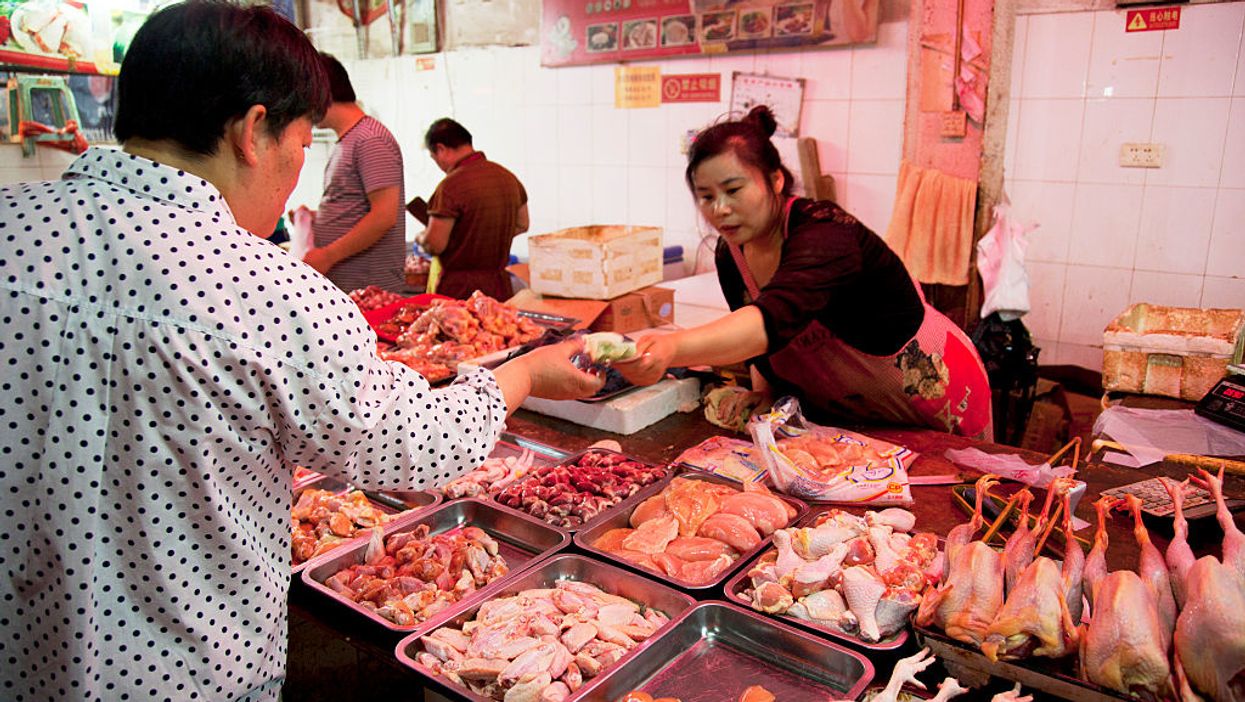
In Pictures Ltd./Corbis via Getty Images

'The markets have gone back to operating in exactly the same way as they did before coronavirus'
As the coronavirus pandemic ravages the world, China has reportedly reopened its infamous wet markets.
Wet markets are distinguished from dry markets by the selling of fresh meat, produce, and other perishable items. However, China's wet markets are notorious because exotic animals are often sold in unsanitary conditions.
In fact, the COVID-19 outbreak has been traced back to a Wuhan wet market. Horseshoe bats and exotic mammals, such as civets and pangolins, which act as hosts to the dangerous viruses that bats carry, are often sold at these markets and consumed by local Chinese people.
But that hasn't convinced China to permanently shut down the markets.
According to the Daily Mail, wet markets have reopened across China after China's communist government publicly declared victory over COVID-19.
At one market in Guilin, a southern Chinese city, a Daily Mail correspondent watched as cats and dogs were waiting to be sold for their meat.
At another market in Dongguan, a second Daily Mail correspondent photographed signs advertising the sale of bats, scorpions, snakes, lizards, and other exotic wild animals.
"Everyone here believes the outbreak is over and there's nothing to worry about any more. It's just a foreign problem now as far as they are concerned," one of the correspondents said.
The Dongguan correspondent reported that the markets are operating just as they were before the COVID-19 outbreak — except now security is stopping people from taking pictures.
"The markets have gone back to operating in exactly the same way as they did before coronavirus," the Dongguan correspondent said. "The only difference is that security guards try to stop anyone taking pictures which would never have happened before."
The Associated Press reported in February:
SARS and the current outbreak of COVID-19 are not the only diseases in people traced back to animals. The killing and sale of what is known as bushmeat in Africa is thought to be a source for Ebola. Bird flu likely came from chickens at a market in Hong Kong in 1997. Measles is believed to have evolved from a virus that infected cattle.
Scientists have not yet determined exactly how the new coronavirus first infected people. Evidence suggests it originated in bats, which infected another animal that spread it to people at a market in the southeastern city of Wuhan. The now-shuttered Huanan Seafood Wholesale Market advertised dozens of species such as giant salamanders, baby crocodiles and raccoon dogs that were often referred to as wildlife, even when they were farmed.
Chinese President Xi Jinping vowed in February to "resolutely outlaw and harshly crack down" on the illegal exotic wildlife trade in China — just as China did in the wake of the SARS outbreak nearly two decades ago — but it appears the promise was hollow.